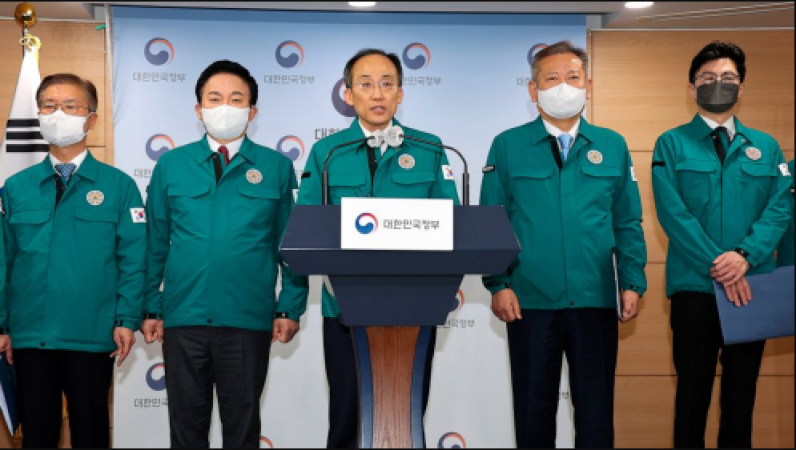
Seoul: In response to a nationwide walkout by thousands of freight truck drivers over the issue of freight rates, the South Korean government on Thursday extended its order to return to work, claiming a prolonged strike would leave "deep scars" on the country's economy.
Vital export industries such as automobiles and shipbuilding could be hurt if the strike continues, according to Finance Minister Choo Kyung-ho, who told a news conference that "start work" orders on steel and fuel truckers were inevitable.
So far, strikes have mainly affected domestic industries such as construction.
Also read: Elon Musk briefly loses world's richest man's title to Bernard Arnault
The orders, which were earlier placed on November 29 for around 2,500 cement truckers, were later placed on around 6,000 steel drivers and 4,500 fuel and chemical drivers. Police are also getting tough on unionists who harass or endanger co-workers who decide to go to work.
The impact of the strike had begun to fade as it entered its third week, with container traffic at the country's major ports returning to pre-strike levels and cement deliveries to construction sites resuming.
The conservative administration of President Yoon Suk Yeol has taken aggressive action to reduce delays in industrial shipments, which include about 200 military vehicles, including fuel trucks and containers.
The minimum freight rate system, which is due to expire at the end of 2022, was the focus of a November 24 walkout by truckers represented by the Cargo Truckers' Solidarity Union. They claim that this is necessary for security and financial stability in the face of rising fuel prices.
Also read: Speedier drug approvals hit slowdown as FDA faces scrutiny
Strikers are calling for minimum fares to be raised for other cargo, such as oil and chemical tankers, steel and automobile carriers, and package delivery trucks, even though they currently only apply to shipping containers and cement.
Yoon's administration offered to extend the current program for an additional three years, but has so far rejected requests to broaden the application of the minimum rates.
In accordance with a law amended in 2004, which states that failure to comply without a "reasonable reason" could lead to up to three years in prison or a maximum fine of 30 million won ($22,800), the order was issued by South Korean The first example being used by the government. Controversial Powers.
Because the law does not clearly define what are acceptable strike conditions, critics claim it violates constitutional rights.
Labor unions in South Korea have urged the International Labor Organization to investigate whether a government order requiring cement truck drivers to return to work violates fundamental labor rights.
Also read: China says it will relax its strict anti-COVID-19 regulations
The UN agency requested that the South Korean government clarify its position on the issue in a letter addressed to Corinne Varga, director of international labor standards, according to the Ministry of Employment and Labour.